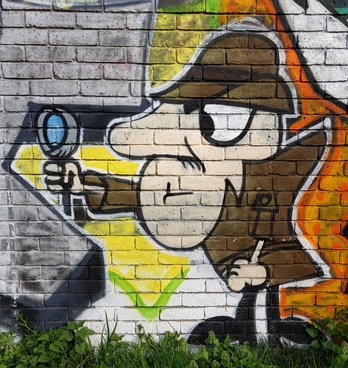Face masks present a challenge for face identification; but it’s only slightly harder to recognise a face behind a mask than a face in sunglasses. That’s according to a study led by the University of Huddersfield.
Performance may be improved by using super recognisers – people who are very skilled at recognising faces. The research also suggests that masks do make recognising someone’s emotions more difficult.
Dr Eilidh Noyes, Senior Lecturer in Cognitive Psychology at Huddersfield, conducted the study, published by the Royal Society, with other UK researchers and co-authors Prof Josh Davis, University of Greenwich, who as a specialist in super recognisers has been a speaker at the Security TWENTY event at Heathrow; Nikolay Petrov, University of Greenwich; Dr Katie Gray, University of Reading; and Dr Kay Ritchie, University of Lincoln. Dr Noyes wondered what the enforced wearing of masks due to the covid-19 pandemic would have on facial recognition.
Three experiments tested recognition of familiar faces, recognition of an unfamiliar face (comparing images, also known as face matching), and emotion recognition. The researchers compared face recognition and emotion recognition for faces with no concealment, faces in masks, and faces in sunglasses – something far more commonplace than masks and often a matter of choice rather than necessity.
In the first experiment, participants were presented with pairs of famous faces, and were asked to decide if the images were of the same person or two different people.
Dr Noyes says: “People are typically very good at identifying the faces of people they know well. However, we found that face masks reduced accuracy on this task. There was no difference in accuracy for faces in masks compared to faces in sunglasses. Accuracy on the familiar face recognition task remained high – around 90 per cent – even for faces in masks.
“Face comparisons are much more difficult if the faces are unknown to the identifier, but it is this task which mimics what can happen in many security scenarios. In the unfamiliar face comparison task, both masks and sunglasses reduced identification accuracy. Masks impaired performance the most, but only a little more than sunglasses.” This difference in recognition was at only around 3pc.
A group of people who were known to be ‘super recognisers’ also took part in the task. Super recognisers have an exceptional natural ability for recognising a face, an ability that only 2pc of the population have. Super recognisers outperformed typical observers for unconcealed faces, faces in masks, and faces in sunglasses, showing that they still outperform typical observers even when looking at concealed faces. This study is the first to test the performance of super recognisers for faces in masks.
As for the recognition of a person’s emotional expressions, participants in the study viewed face images and were asked to decide which emotion had been displayed.
“The effect of masks on emotion categorization was more complex than the results for the recognition task,” Dr Noyes says. “The emotions ‘happiness’, ‘disgust’ and ‘surprise’ were particularly difficult to recognise when the faces were in masks, but the recognition of the emotions ‘anger’ and ‘fear’ were impaired by both masks and sunglasses.”
Dr Noyes adds: “The results of the study show that the lower half of the face is important for face identification and emotion recognition. It’s not all in the eyes!”
She was an author of a 2018 paper in Applied Cognitive Psychology on the problems identifying faces in poor-quality images, such as CCTV footage.
Image by Mark Rowe: canalside graffiti art, Ghent, Belgium.









